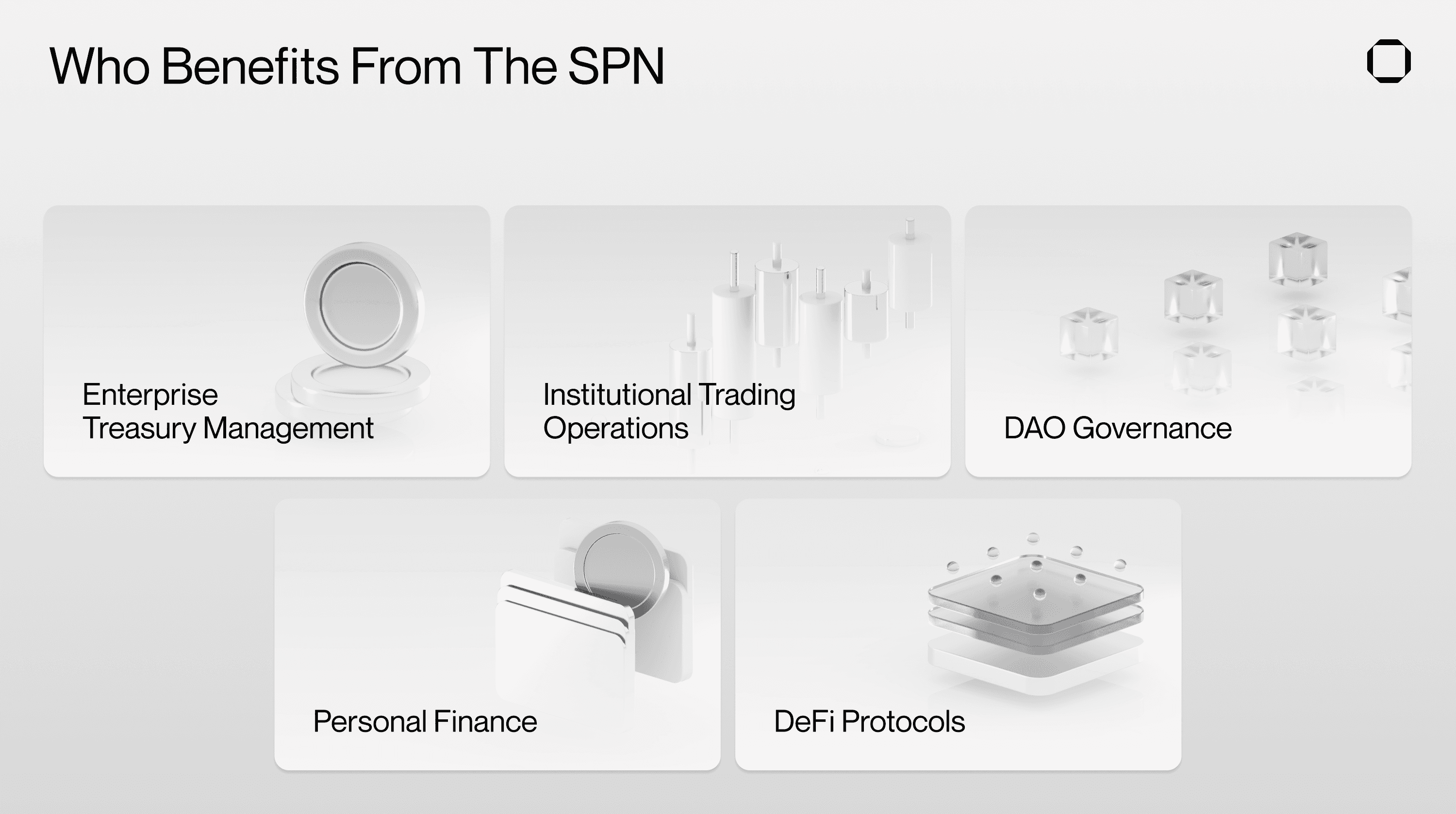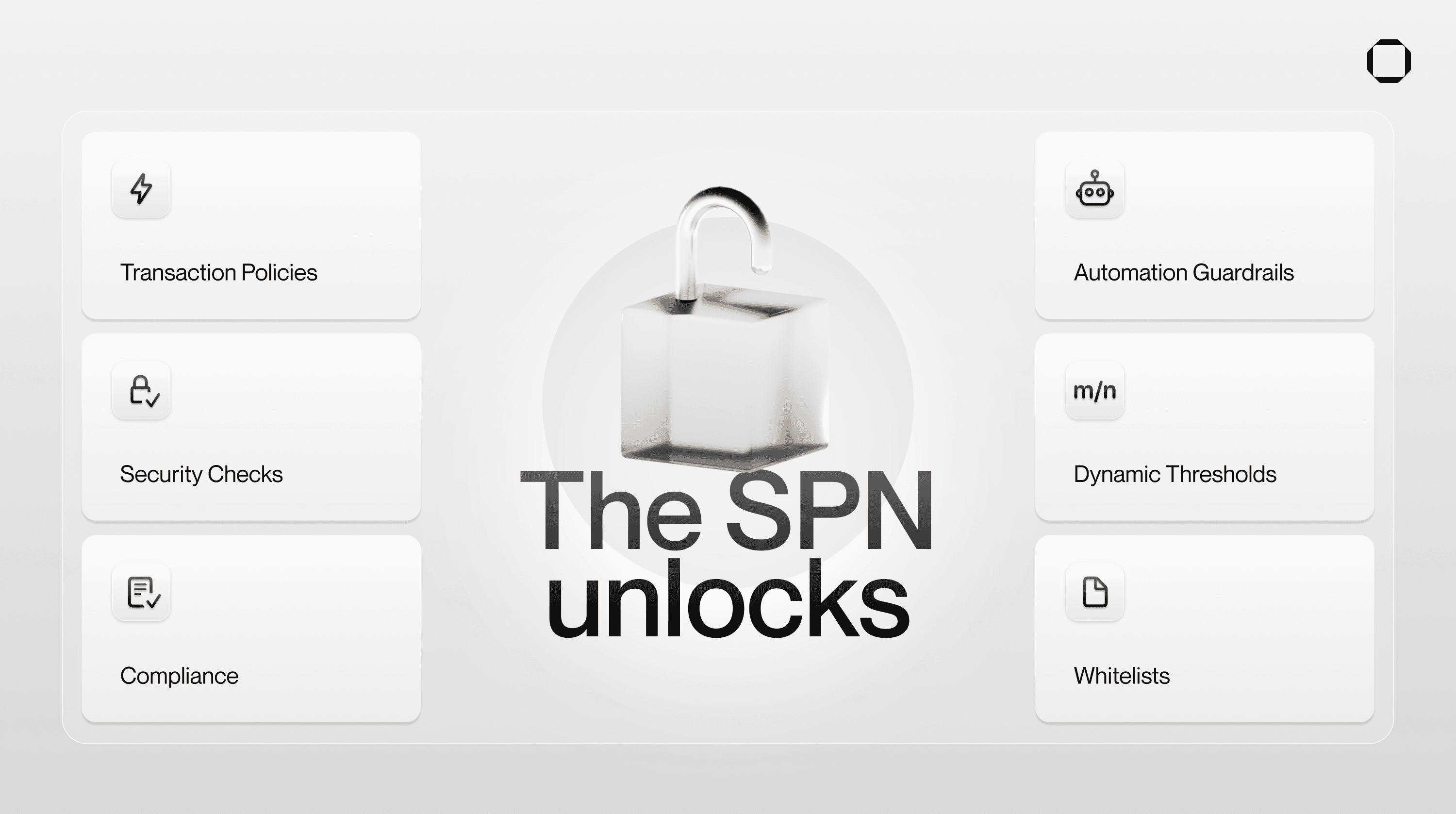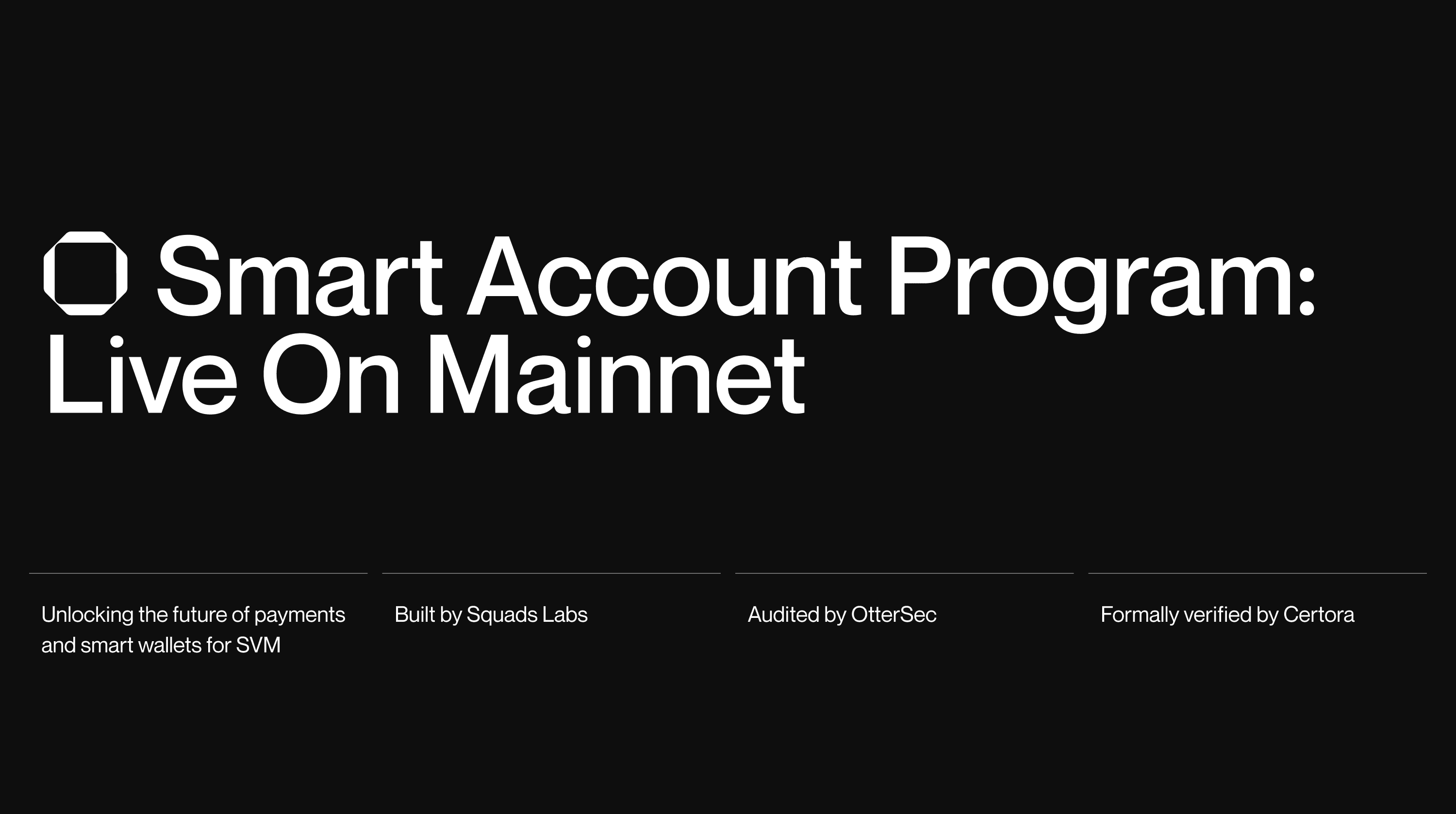Today, we are thrilled to announce the development of the Squads Policy Network (SPN), a decentralized network designed to enhance the functionality of Squads Protocol on Solana and the SVM. This will enable granular and general-purpose transaction policies for smart accounts, providing advanced security and flexibility for digital asset management. The SPN will coordinate and incentivize network diversity, reliability, and performance by integrating Jito (Re)staking.
Why Create the SPN?
Onchain is eating the offchain, but this will only continue if enterprises and individuals have a reliable and intuitive way to self custody digital assets. Many are still using outdated, centralized models for protecting their assets. Hot wallets are a single point of failure. Cold storage can be secure but lacks flexibility, and newer solutions like MPC wallets still heavily rely on trusted centralized parties. Programmable onchain accounts are the answer. They are trustless, transparent and fully self-custodial. This is why, in 2021, we started developing Squads Protocol - the smart account standard for SVM that now secures $10B+ in value.
Our onchain programs cover a lot of ground, allowing for multi-signature capabilities, key rotation, gas abstraction, spending limits, time locks and more, but they lack the granular policies offered by centralized custody solutions. Our research on how to provide these granular controls without compromising security led to the development of the Squads Policy Network (SPN).

Major Unlocks of the SPN
The SPN enables granular transaction policies for smart accounts by serving as a conditional signer that only approves transactions if authorized under the user-generated policy. This enables parameterization per subaccount, transaction type, program interaction and asset type. These nuanced policies will offer enterprises the flexibility of centralized custody in a trustless and decentralized manner, making smart accounts the default option for onchain asset management.
The SPN will provide custom and general-purpose policies that will be available to all users. These policies fall under three primary categories: Security, Compliance and Automation Guardrails:

Security
The SPN can be used to simulate and authenticate transactions to ensure the security of the user's funds. For example, a general-purpose policy could provide additional guarantees that transactions are not interacting with malicious programs or counterparties. This includes double verification of proposed transactions to mitigate potential hacks or malicious attacks on the front end interacting with the underlying smart accounts (a man-in-the-middle attack).
Security use cases extend beyond traditional treasury management. Smart accounts are often delegated to control various resources, such as validators, token mints, and program upgrades. The SPN has the potential to provide third-party verification of proposed changes to these authorities and help prevent the execution of malignant instructions that put these assets at risk.
Compliance
The SPN will review and approve transactions based on third-party approval and compliance criteria, including local jurisdictional requirements, KYC verification, and sanctions list checks.
For example, the SPN could act as a conditional signer on a 2/3 smart account, configured to reject transactions involving sanctioned programs or wallet addresses.
Automation Guardrails
The SPN will provide guardrails for automations to ensure that only user-authorized actions can be performed on the account and its assets. These guardrails will be integral to the upcoming Squads Automation Engine, which will enable users to create smart account automations triggered by specific events and timeframes. The potential for automations will expand as AI agents become more prevalent, with the SPN serving as a safeguard to ensure these agents operate within user-defined security parameters. These secure automations pave the way for:
Automated Portfolio Management: Rebalancing portfolios based on user-defined criteria, including asset weightings and market conditions.
DeFi Services Automation: Managing liquidity emissions, automating liquidations, and dynamically adjusting protocol fees based on market conditions.
Scheduled Transactions: Executing recurring transactions like payroll disbursements or periodic investments as specified by the smart account owner
How it works
The SPN operates as a peer-to-peer network of registered nodes that work in conjunction with the onchain Squads Policy Program and Jito (Re)staking. Here’s a step-by-step overview of how it functions:
Policy Creation: An onchain account (PDA) is created for each user-generated policy.
Policy Enforcement: The SPN acts as the agent enforcing the policy and is added as a signer to the smart account.
Transaction Verification: When a user initiates a transaction, the SPN verifies its alignment with the defined policy.
Approval or Rejection: If the transaction complies, the SPN approves it and generates an authorization signature. If it violates the policy, the SPN rejects it, preventing execution.

Jito (Re)staking Network
Jito (Re)staking is a multi-asset staking protocol for Node Consensus Networks (NCNs). The protocol tokenizes staked assets as Vault Receipt Tokens (VRTs) for enhanced liquidity and composability. Node consensus networks can use Jito (Re)staking to easily customize staking parameters, slashing conditions, and economic incentives to tailor their security and tokenomics.
The SPN will integrate Jito (Re)staking to coordinate and incentivize network diversity, reliability, and performance. A comprehensive technical breakdown will be provided in an upcoming Whitepaper.
Advantages of SPN Over Centralized Models
The SPN extends the scalability and security of onchain smart accounts to provide several advantages over alternative centralized models:
Network Reliability: The SPN eliminates the single point of failure inherent in centralized systems by leveraging a diverse network of qualified operators.
Security Through Diversity: Operators can run modified versions of the same spec to verify transactions, adding redundancy and diversity to policy authentication.
Economic Incentives: Jito (Re)staking aligns incentives by creating economic rewards for operators to maintain uptime, accuracy, and validity.
Quality and Reputation: Trust is derived from the quality, diversity, and incentives of the operator set, backed by reputation, future cash flows, and deposits at risk.
Accelerate
The Squads Policy Network represents a major step forward in onchain custody and asset management. It will offer a robust, secure, and adaptable solution by combining the flexibility of centralized services with the security and composability benefits of onchain smart accounts. Our goal is to make digital asset management intuitive, scalable and secure for everyone - from individuals protecting their savings to businesses automating complex strategies. The SPN is the next step to deliver this vision and accelerate the adoption of onchain solutions.
Stay tuned for updates as we develop and launch the SPN.



